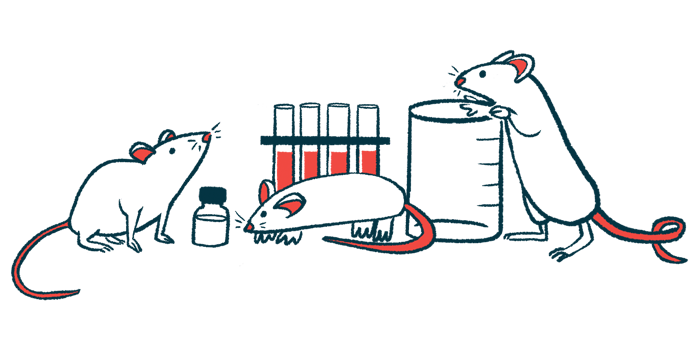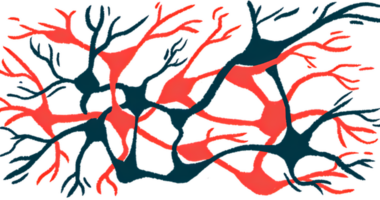Resveratrol oral formulation Jotrol shows gains in mouse model
Treatment improved mice's muscle strength, motor coordination, behavior

Jotrol, Jupiter Neuroscience’s oral formulation of resveratrol, significantly improved muscle strength, motor coordination, and behavior in a mouse model of Parkinson’s disease, the company reported.
“This research demonstrates the neuroprotectant abilities of Jotrol as a potential treatment to prevent onset and progression of PD [Parkinson’s] symptoms,” said Alison Silva, Jupiter’s president and chief business officer, in a company press release. “These exciting data support our nomination of JNS115 as our next development project and our entrance into the PD population. JNS115 is a clear strategic priority for the Company.”
Several Jotrol-based projects are currently part of Jupiter’s pipeline for treating Alzheimer’s disease and other neurological diseases. The company has renamed its Jotrol candidate for Parkinson’s JNS115.
Resveratrol, a chemical compound found in the skin of grapes, peanuts, cocoa, and berries such as blueberries and cranberries, is known for its antioxidant and anti-inflammatory activities. Several studies have reported its neuroprotective effects in neurodegenerative diseases, including Parkinson’s, Alzheimer’s, and Friedreich’s ataxia.
Current formulations of resveratrol have a limited bioavailability, however, meaning its blood levels are below what’s needed to reach its target areas and are often linked to gastrointestinal side effects.
Jupiter’s Jotrol platform lets resveratrol be taken in a patented oral soft gel formulation designed to deliver therapeutic levels without gastrointestinal issues.
The formulation can cross the blood-brain barrier and reach the central nervous system (CNS; the brain and spinal cord) where it exerts its therapeutic benefits. The blood-brain barrier is a highly selective membrane that protects the CNS from potentially harmful substances in the blood. Crossing it is often a challenge for CNS-targeting therapies.
In a Phase 1 clinical trial (NCT04668274), ascending doses of Jotrol were deemed safe and well tolerated in healthy volunteers, with no serious side effects reported. Moreover, blood levels of Jotrol were eight to 10 times higher than the levels registered in past trials with other resveratrol formulations.
Results from this trial will be used for all Jotrol indications, enabling trials to proceed directly to Phase 2, according to Jupiter.
Conducted in collaboration with Shaun Brothers, PhD, and Candace Carriere, PhD, at the University of Miami School of Medicine, the proof-of-concept preclinical study tested the therapy in a validated mouse model of Parkinson’s.
Top-line data showed Jotrol significantly improved the animals’ motor function and coordination and reduced behavioral symptoms.
Motor outcomes were assessed through changes in grip strength, which are used to measure disease severity and progression, and rotarod test performance to evaluate the rodents’ motor strength and coordination. The treatment was also deemed generally safe and well tolerated.
“We look forward to advancing the [Parkinson’s] program with a partner, as well as continuing to advance our internal rare disease and ongoing MCI [mild cognitive impairment]/early Alzheimer’s Disease programs,” Silva said.







